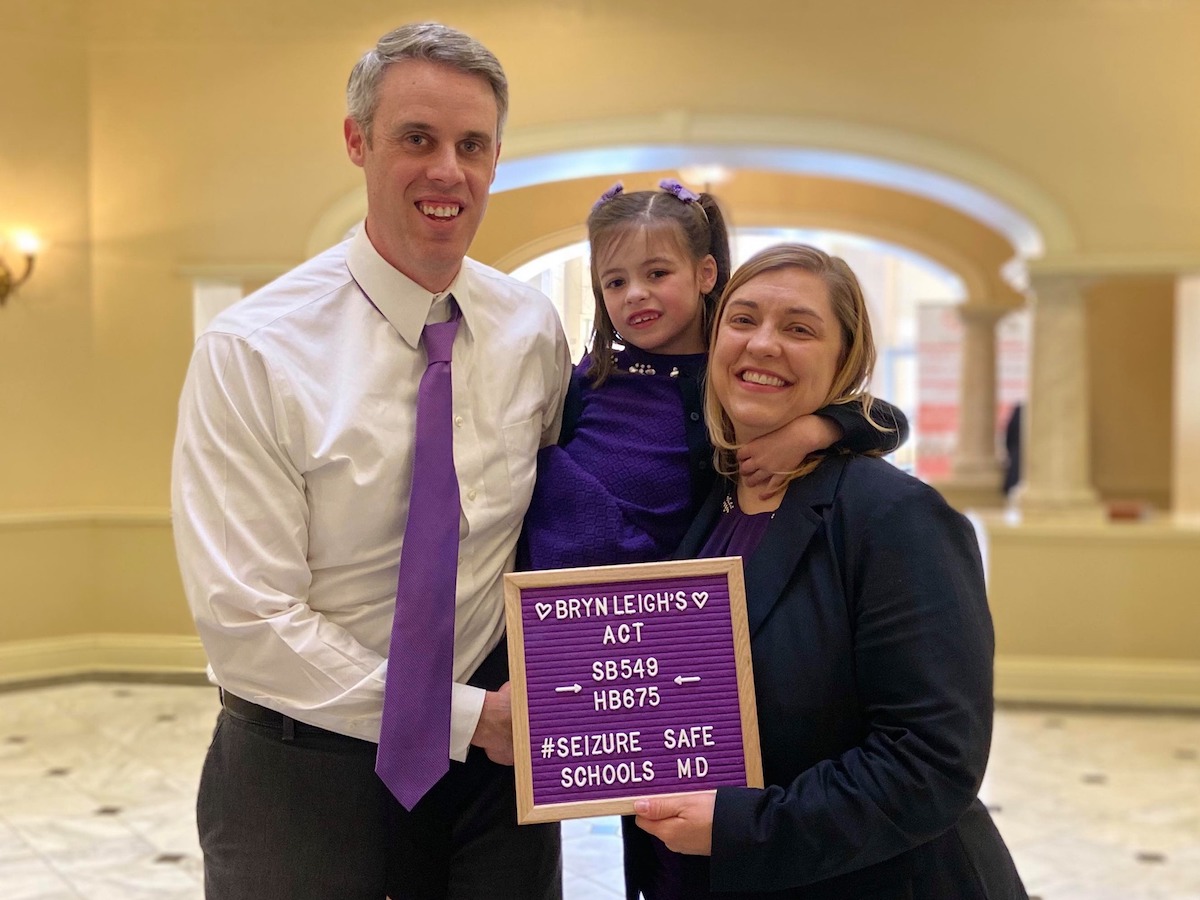Shillinger's work led to the passing of "Brynleigh's Act" in Maryland, a law that will provide seizure-safe schools throughout the state.
From her time at Elon, Lauren Shores Shillinger ’02 knew she wanted to make a difference, but never knew that her path would be advocacy. Today her primary passion is to be a voice for her daughter and other children that are diagnosed with epilepsy by opening doors through legislative change. Shillinger advocated on a state level for over three years in the Maryland General Assembly to ultimately pass “Brynleigh’s Act,” a law that will provide seizure-safe schools in the state of Maryland.
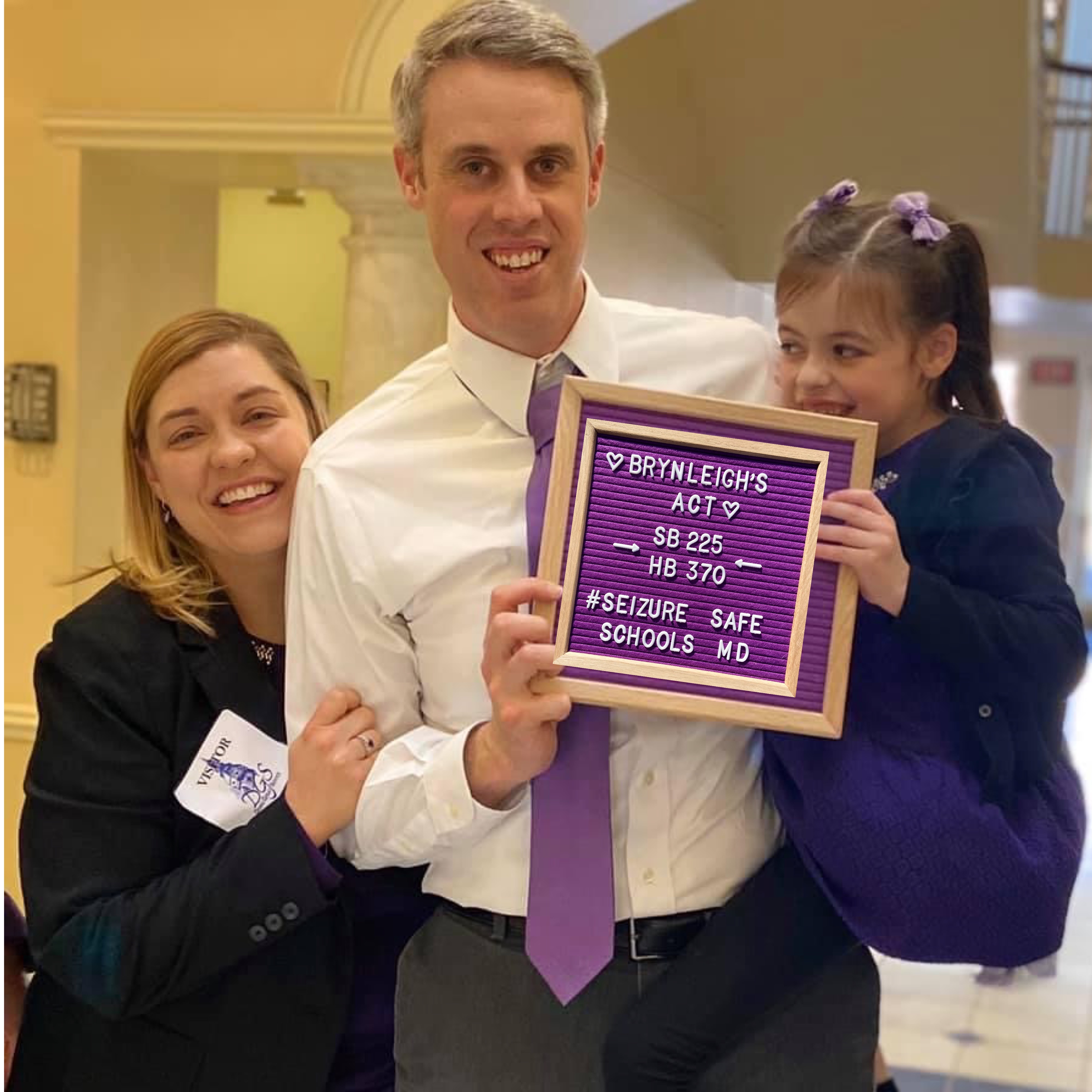
Shillinger ultimately decided to attend Elon University after being selected as an Isabella Cannon Leadership Fellow. She majored in communications and graduated with the goal to continue in the field. However, with a recession looming and a limited job market, she spent her first several years out of college working on the business side of the healthcare industry, where she helped lead at the forefront of e-prescriptions. Through this work she learned a great deal about the medical field and medical diagnosis.
During her first pregnancy, Shillinger gave birth to a healthy baby girl with little to no complications. Things took a turn though when her daughter, Brynleigh, was just nine months old. Brynleigh started having unusual episodes that prompted Shillinger and her husband to take their daughter to the Children’s National Hospital for answers.
At the hospital, they did a lot of testing. “It was really terrifying to be told, ‘hopefully it’s just epilepsy,’ as a brand new parent,” said Shillinger. “It sounded pretty extensive and like a big diagnosis to us.” Shillinger learned through this process that many children have a medical reason for epilepsy, but others may not have one that can be pinpointed.
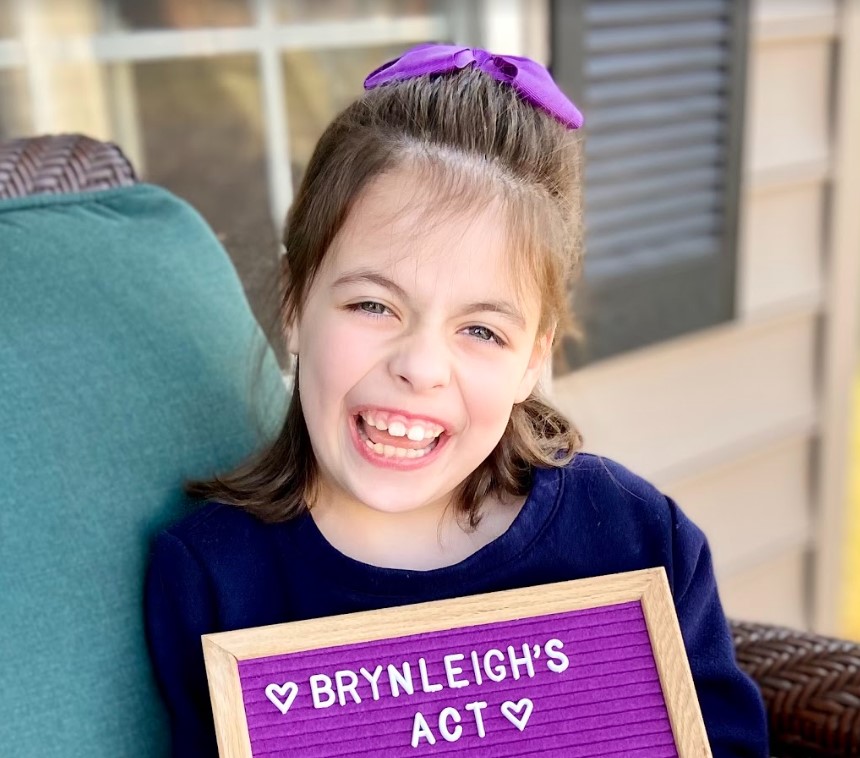
After a week in the hospital, doctors tested every organ in Brynleigh’s body and found tumors on her brain, heart and even spots on her skin. She was eventually diagnosed with a rare multi-system genetic disorder called tuberous sclerosis complex (TSC), a disorder that can range from minor impacts to major ones, depending upon the person. There is currently no cure for TSC and it is the leading genetic cause of autism, which Brynleigh is also impacted by. “We were told there was no crystal ball for our daughter, leaving us with no real answers for what to do next. Bryleigh was said to be moderately affected and had to undergo three brain surgeries,” said Shillinger.
They had to decide whether or not they wanted to be more introverted about their journey but the right choice for their family was to advocate for Brynleigh and others as much as possible. As a family, they decided to spearhead the initiative of advocacy for Brynleigh’s diagnosis. Shillinger and her husband connected with the TSC Alliance out of Silver Spring, Maryland, a non-profit organization that fundraises and researches for a cure. The two met with lawmakers on Capitol Hill to fundraise for TSC research, followed by support from the Epilepsy Foundation. “It has been a very complex medical journey and we decided to be Brynleigh’s voice until she can be her own advocate,” said Shillinger.
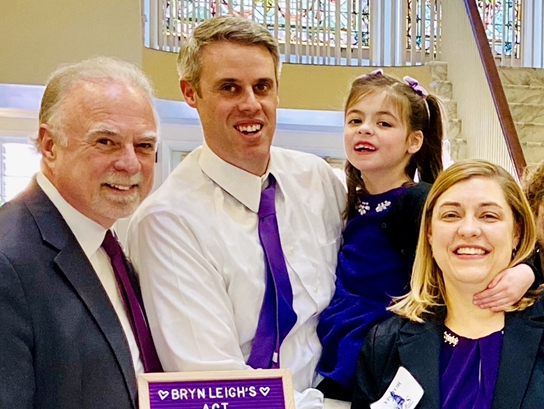 She was surprised to find that in the state of Maryland, there are no full-time nurses in schools every day and teachers do not have seizure response training. As any parent would be, Shillinger was concerned for her daughter’s safety since school personnel were not equipped to handle an unexpected seizure. “Seizures can be life-threatening and require emergency medication or medical intervention,” said Shillinger. “I could not let my daughter and other affected children go to school without a change in place.”
She was surprised to find that in the state of Maryland, there are no full-time nurses in schools every day and teachers do not have seizure response training. As any parent would be, Shillinger was concerned for her daughter’s safety since school personnel were not equipped to handle an unexpected seizure. “Seizures can be life-threatening and require emergency medication or medical intervention,” said Shillinger. “I could not let my daughter and other affected children go to school without a change in place.”
Around that time, legislation was being passed in the state of Kentucky for seizure-safe schools, and it prompted Shillinger and her family to pursue their own bill for the state of Maryland in 2019 called, “Brynleigh’s Act.”
After meeting with the senator and delegate of their district of Frederick, Maryland, their story sparked a need for change. They first created model legislation and then they filed the bill through the Maryland General Assembly in 2020. The process was long and not without hardship for these young parents, and they could never have anticipated a global pandemic impacting their work. The COVID-19 pandemic altered the legislative landscape around the world, bringing things to a halt. For the first time since the Civil War, all state legislatures were forced to shut down. Unfortunately, the bill was not considered emergency legislation, and it was put on hold until the following year.
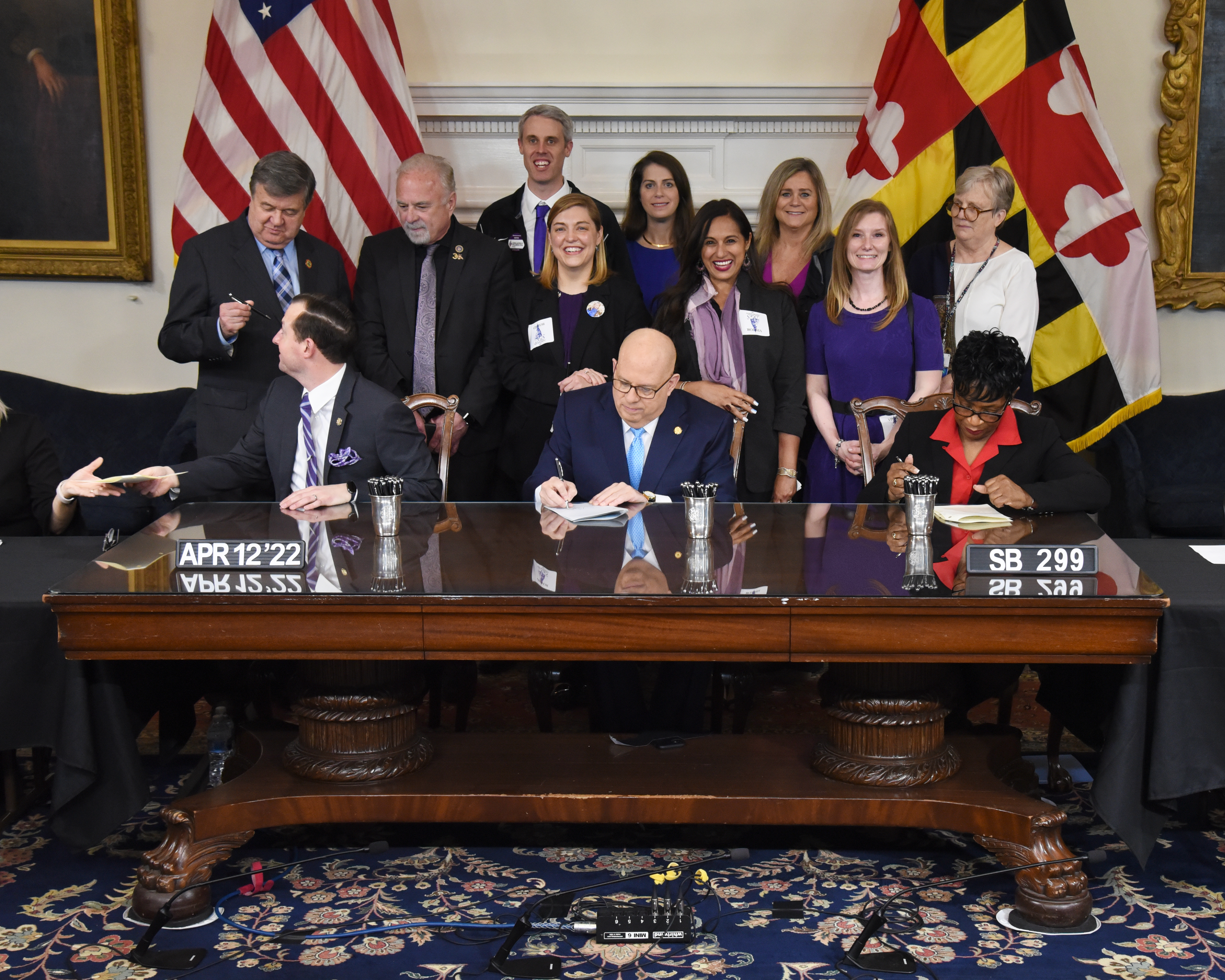
With the burden of the pandemic weighing heavy on school officials who did not want to add more to the chaos, Shillinger had to fight hard for “Brynleigh’s Act” because it would help not only her daughter but 8,000 other students diagnosed with epilepsy in the state of Maryland. “One in 26 can become diagnosed with epilepsy at any time, and one in 10 will have a seizure in their lifetime,” said Shillinger. “Once we were able to explain the gravity of the amount of people impacted by this in our state, we pushed for seizure training and action plans in schools as well as training to administer seizure rescue medications.”
Bringing the bill back for the third time in 2022, Shillinger and her husband were able to finally get the legislation to pass unanimously in both the state House and Senate when it was signed by Governor Larry Hogan in April 2022. “Brynleigh’s Act” became a law in Maryland, and will be implemented in this upcoming 2023-2024 school year. “Maryland was the 15th state to pass seizure-safe school legislation,” said Shillinger. “There are now 20 states that have passed legislation, and the goal is to pass all 50 states over the next few years.”
Before this legislation, Shillinger had to go to school as Brynleigh’s mother to provide training to the teachers and staff, but this is the last semester she will have to do that. “It was a full circle moment for me knowing that this will be a lasting legacy,” said Shillinger.
 Many other parents are following in Shillinger’s footsteps and taking initiative to have full-time nurses back in schools and more first-aid training provided for school personnel. Shillinger spends her time working in a group with the National Epilepsy Foundation and the board of education and health department to ensure the new law will be implemented as intended. Along with aiding in the rollout of the law, she also plans to hold a webinar class to inform all parents in the state of Maryland about the law and its impact.
Many other parents are following in Shillinger’s footsteps and taking initiative to have full-time nurses back in schools and more first-aid training provided for school personnel. Shillinger spends her time working in a group with the National Epilepsy Foundation and the board of education and health department to ensure the new law will be implemented as intended. Along with aiding in the rollout of the law, she also plans to hold a webinar class to inform all parents in the state of Maryland about the law and its impact.
“Going to Elon, I never knew that I would work on projects like this,” said Shillinger, “You never know where your journey is going to take you.”



